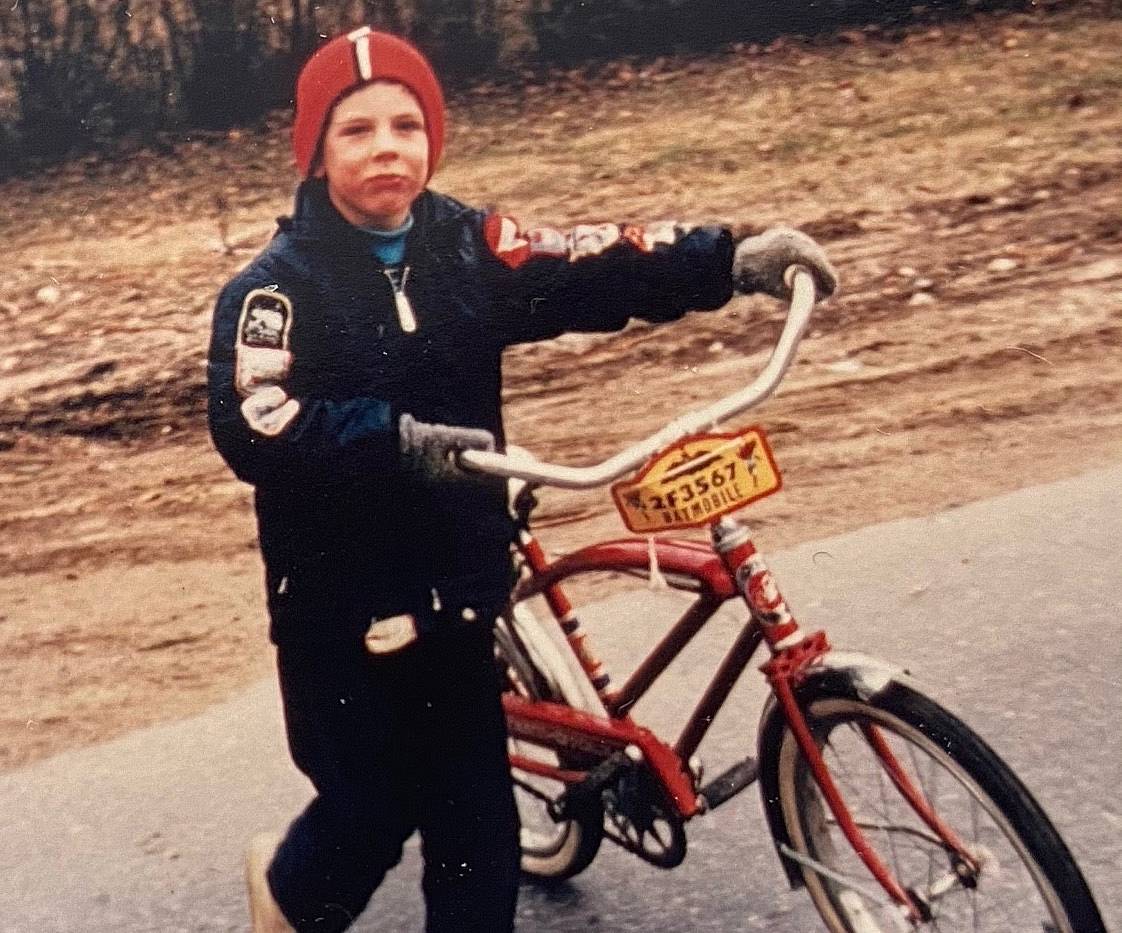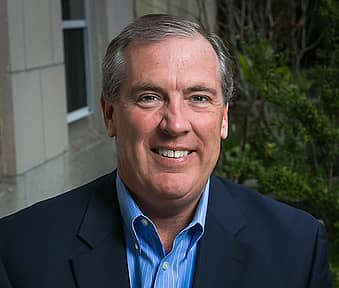Amidst the distracted haze which served as my 9th grade, I remember religiously taking notes about the House of Tudor for Mr. Topka’s History class since he would run out with us at recess and quarterback our touch football games.
And when I went off to boarding school a year later, I devotedly followed dorm rules (or at least those unrelated to cleanliness) since I’d be trying out for the dorm parent’s baseball team come springtime. (The coach, Father Rogers, would wear his collar to games as a show of subliminal influence to the umps; I went on to follow his mantra emphasizing “effort and attitude.”)
As a sports-obsessed, attention-deprived boy, coaches inspired me until the athletic confidence finally lit what had been, shall we say, a “dormant” intellectual pilot light. The flame began glowing somewhere at the age of 14 when Madame Ruggles ushered me inside Notre Dame in Paris and onto the beaches of Normandy on an exchange trip, and grew hotter during my sudden transition from Econ major to Humanities wannabe the first few weeks at a small liberal arts college in the mountains of Maine. The late Professor John Mizner took a gamble on me and oversaw my senior project, where I wrote a horrendously sappy 95-page “novel,” and befriended me not only in his office, but on the tennis court, where he warned of mixed metaphors during changeovers, and at the local tavern, where he critiqued my overreliance on flashbacks (drinking age was 18 back then, I promise). He served an ace on match point by writing me a recommendation that landed me my first job as a newspaper reporter right after graduation.
Mathematically speaking, my DNA was actually formed by quantitative genes – my Dad and three older siblings all went into business. But once the heavily bearded, miniscule Irish Lit Professor John Sweney sparked a love of literature during my college freshman seminar, I completed a successful Hail Mary pass and traded in my math path for a reading route, despite SAT scores that didn’t exactly highlight my Verbal acumen. (Full disclosure: my girlfriend Sarah, a lightning quick reader, walked me through innumerable plot review sessions in what was a gauntlet of 19th century novels; she’s since become my wife for 36 years and business partner for 12.)
But the still-present shades of distractibility kept me from focusing on a single discipline in college. Since I couldn’t decide between English or French, I just majored in both, then spent the next 25 years both giving back by teaching high schoolers those twin subjects, while also pursuing graduate degrees in both areas. I’ve always felt being a chronic student made me a better teacher, as I would live parallel moments of breakthroughs and vulnerabilities along with my students. During one of several stints studying in France, I remember trying to ask a stately Catholic matriarch for jam two hours into a Sunday lunch. She raised her eyebrows as if I had asked her not for a raspberry beret, but rather for raspberry condoms – which I had, mistaking a cognate and demanding “préservatifs de framboise.” And I also remember donning white gloves to sift through Albert Camus’ private diaries from the Résistance in the National Library in Paris. As a writer, I recall staying up all night before having to workshop a drowning scene in a draft of one of my short stories – then the quiet sense of achievement I received thumbing through the piece when it was published in an obscure, university literary magazine two years later.
But the real joy in my lifetime of education has come seeing students respond to what I have passed down: witnessing Brett return from a treasure hunt through Paris exclaiming “Voilà, Monsieur!” and presenting his Post-It listing prices for hotel rooms, and times for theater seating; Annika emailing me to say she had decided to major in creative writing in college; John, a former advisee, taking me out to lunch a month before the pandemic hit this spring to share not curricular highlights, but rather random banter and anecdotes experienced during hang-out times shooting the breeze between classes. (Mr. McMillan, you used to bring your son in when he wasn’t feeling well and he’d play with Army men under your desk… or you’d spend the first five minutes of class talking about how you and had your boys helped you hammer together your backyard rink last night in the sleet!) John’s now a 40-ish-year-old health care exec; that son is a 25-year-old Field Artillery First Lieutenant.
In truth, John and his fellow rascals in that particular year’s advisory gave more to me than I gave to them. Over burgers with him that day in Kenmore Square, just before COVID shut down the restaurant for good, we recalled starting class one day by marching out to the school sign to snap a photo and send a note of sympathy to a high school in Colorado we’d never heard of before that morning – Columbine – and how on 9/11 during the 10:00 a.m. break kids had streamed into my English classroom to have me reload the Yahoo news page, where we couldn’t figure out if a small plane had hit one of the TwinTowers by mistake.
The current – and final – chapter of my educational career has reincorporated some of the Econ DNA, as Sarah and I have managed a team of compassionate and gifted educational counselors the past 12 years. But it’s when I can get my head out of the spreadsheets that I enjoy this gig most – I mean, how lucky can I be? As an educational consultant, I have a job where I get to do two things I love – visit campuses, and work with kids. I never thought I’d be using my language skills to help students from France find the right university, nor that my freezing, pre-dawn hours toiling in my tool shed writing my fiction before my boys would wake up would actually lead to me helping kids tap a vein to write their intimate admissions essays. And I get to work in a true family business with my wife and my older son, who has shared his love of Classics with me during the pandemic, teaching me Plato and Virgil. (He actually grades me, and there’s no grade inflation as there was in Mr. Topka’s History class, believe me, though he has tempered his classical curriculum with full season viewing of his favorite shows, The Office and West Wing – where I also receive a grade after each episode, losing points for getting distracted.) And I credit my liberal arts flexibility to our ability to pivot on a dime in 2020 and keep the business healthy. That said, I hope our Mom and Pop show doesn’t have to deal with the spreadsheet hell which was the Paycheck Protection Plan ever again, please.
Meanwhile, I’ll let my youngest son carry the teaching torch. He’s what we call in the field a Triple Threat: he teaches history, coaches football, and runs a dorm – corralling a COVID-claustrophobic herd of post graduate boys in a New England boarding school. I know some of his students will remember him the way I do Mr. Topka and Madame Ruggles and Father Rogers and Professors Mizner and Sweney.


